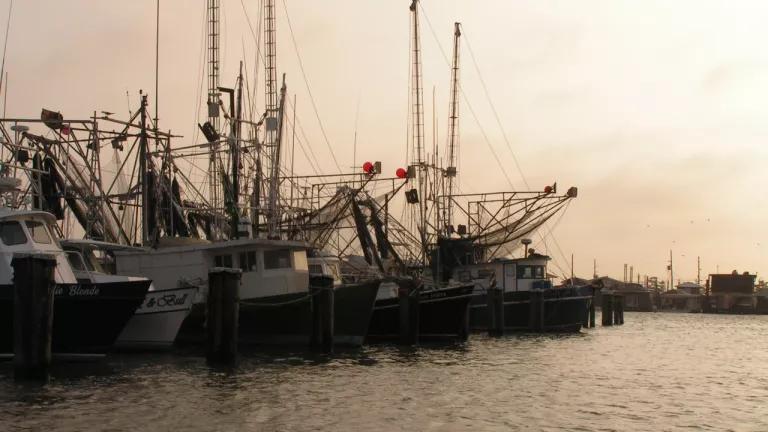Building Climate-Ready Fisheries and Fishing Communities
Warming waters are driving a mass migration of life beneath the sea—and a decades-old fishery law cannot keep up without climate-ready science and policy.

Illustration by Christina Chung
Marine fisheries represent the world’s last major wild food system. They also hold enormous value: Working waterfronts enrich the cultural identity of our coastal communities while the commercial and recreational fishing industries annually support an estimated $250 billion in economic activity and 1.7 million jobs in the United States alone. The Magnuson-Stevens Fishery Conservation and Management Act (MSA) has helped to safeguard these valuable resources. Enacted in 1976, the MSA’s requirements for stakeholder engagement, science-based catch limits, and fish population recovery plans have rewarded us with dozens of healthy and sustainable fisheries.
But in the 21st century, our fisheries are feeling the impacts of climate change and the decades-old law cannot keep up with the unprecedented transformation of our oceans.
Our oceans are undergoing rapid transformations, including rising acidity levels, shifting currents, and warming waters, as well as more frequent extreme events like marine heat waves. Faced with these changing environments, fish populations are struggling to adapt. While some are successfully migrating to colder waters, others are dwindling. As U.S. fisheries management fails to meet these challenges, the health of the commercial fishing industry and fish populations are both at risk.
Today’s challenge is to quickly understand and respond to the impacts of climate change. That’s why NRDC and our partners are working to address the management framework for shifting fish stocks, jump-start the production and use of climate-inclusive science and data, and integrate climate change considerations throughout the fisheries management process. We’re also championing the MSA’s conservation mandates, which have already led to the restoration of depleted fisheries and must remain strong and science-based. With the foundation that the MSA has built—sustainable levels of fishing, and other climate-ready solutions—fish populations and the communities that rely on them can be resilient, even in the face of rapid environmental change.

With recent advances in ocean research technologies and computing abilities, we are poised for a revolution in fisheries science and marine resource management. Important tools include ship-based trawl surveys, fish identification sonar, autonomous gliders and sail drones, environmental DNA, and regional-scale ocean climate models.
Illustration by Christina Chung




